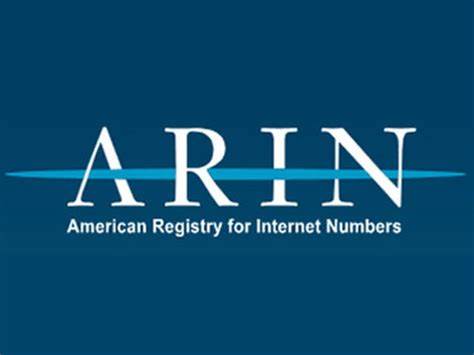
The American Registry for Internet Numbers (ARIN) reported this week of their defeat of an elaborate multi-year scheme to defraud the Internet community of approximately 735,000 IPv4 addresses. Winning the case meant the return of all the addresses and stopped the defrauding party from continuing their scheme.
The emergent IPv4 address transfer market and increasing
demand have resulted in more attempts to fraudulently obtain IPv4 addresses
from ARIN, the non-profit member-based organisation responsible for
distributing Internet number resources in the US, Canada, and parts of the
Caribbean.
“Fraud will not be tolerated. The vast majority of
organisations obtain their address space from ARIN in good faith according to
the policies set out by the community. However, ARIN detected fraud as a result
of internal due diligence processes, and took action to respond in this
particularly egregious case,” said John Curran, ARIN President and CEO.
“We are stepping up our efforts to actively investigate suspected cases of
fraud against ARIN and will revoke resources and report unlawful activity to
law enforcement whenever appropriate.”
In the first arbitration ever brought under an ARIN
Registration Services Agreement, and related proceedings in the U.S. District
Court for the Eastern District of Virginia, ARIN was able to prove an intricate
scheme to fraudulently obtain resources had occurred which included many
falsely notarised officer attestations sent to ARIN. A company in South
Carolina obtained and utilised 11 shelf companies across the United States, and
intentionally created false aliases purporting to be officers of those
companies, to induce ARIN into issuing the fraudulently sought IPv4 resources
and approving related transfers and reassignments of these addresses. The
defrauding party was monetising the assets obtained in the transfer market, and
obtained resources under ARIN’s waiting list process. On May 1, 2019, ARIN
obtained a final and very favourable arbitration award which included
revocation of all resources issued pursuant to fraud and $350,000 to ARIN for
its legal fees.
“In the case just completed, the entities that defrauded ARIN adopted an aggressive posture after ARIN requested that it produce certain documents and explain its conduct—as required by ARIN policy—as they filed a motion for a Temporary Restraining Order and Preliminary Injunction against ARIN in U.S. District Court, and demanded a hearing the following morning (the Friday just before Christmas),” wrote Stephen M. Ryan, ARIN’s General Counsel, on the Team ARIN blog.
“The U.S. District Court Judge ruled for ARIN based on facts
and information in letters ARIN had sent the defrauding entities.
Simultaneously, the defrauding entities also filed an Arbitration claim against
ARIN pursuant to ARIN’s Registration Services Agreement (RSA), the first ever
invocation of ARIN’s dispute resolution mechanism. In both the federal court
and Arbitration, ARIN exposed an intricate multi-year scheme to fraudulently
obtain resources from ARIN. The individual who controlled the entities obtained
and utilised previously created shelf companies spread out across the nation
and used aliases to conceal his identity, including providing ARIN with falsely
notarised affidavits of officers who did not exist to induce ARIN to issue
approximately 735,000 IPv4 addresses to 11 companies and approve transfers and
reassignments of these addresses. On the eve of having to answer under oath in
depositions ordered by the Arbitrator, their litigation position collapsed when
the defrauding party notified the Arbitrator that he would rely on his right to
not testify by invoking the 5th Amendment to the U.S. Constitution.”
This latest Domain News has been posted from here: Source Link
